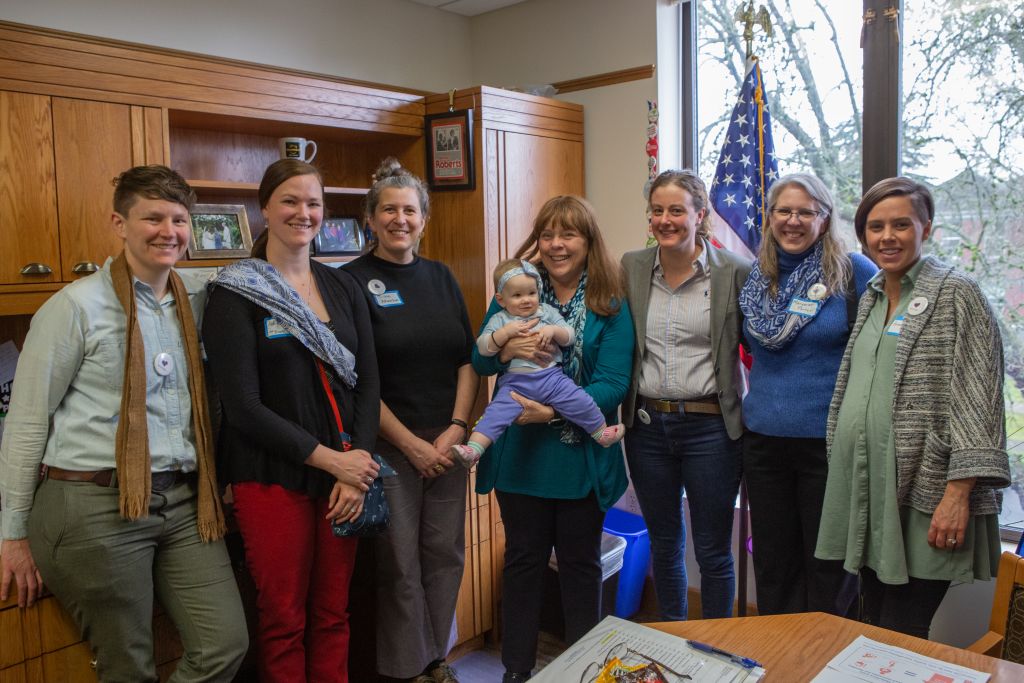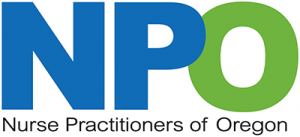OMC advocates for policies that support birthing parents and babies and improve access to midwifery care
Current Legislative Advocacy
Save the date!
Collaborative lobby day with OMC and the ACNM Oregon Affiliate
Wednesday, February 11, 2026, Salem, OR.
We will gather as a community of midwives in Salem to meet with legislators from across the state to share about the importance of midwifery care and the roles midwives can and must play in the systems of care for birthing families in Oregon.
Keep an eye out for more information about how you can participate as the date approaches. We need all of our collective voices to help educate our legislators and community about the contributions of midwifery in Oregon!
Past Legislative Advocacy
HB 2388: Equitable Access to Birth Options & Midwifery Care (Did not pass)
The purpose of this bill was to increase equitable access to birth in community-based settings with care provided by Certified Nurse Midwives, Certified Professional Midwives, and Naturopathic Doctors.

2021 House Bill 2388 – Click to download the PDF of the introduced bill
Oregon regulates the practice of three types of midwives:
- Certified Nurse Midwives, licensed by the Oregon State Board of Nursing as Nurse Practitioners
- Certified Professional Midwives, licensed by the Board of Direct Entry Midwifery
- Naturopathic Doctors with a Natural Birth Certificate, licensed by the Naturopathic Board
These regulatory boards all require specific educational standards and certification exams prior to licensure. In addition, birth centers facilities in Oregon are licensed by the Oregon Health Authority and are required to meet specific standards for licensure.
Birth Center facilities fees are rarely and inadequately covered by insurance, leaving fewer birth options for families. They are covered by the Oregon Health Plan at a rate that is significantly under cost. This bill addresses these facilities fees and requires that insurers offer birth center options and negotiate fairly for reimbursement amounts based on actual costs.
Births attended by midwives and births at birth centers have been well studied in the United States with data showing neonatal outcomes equal to hospital birth outcomes with reduced cesarean rates and reduced costs. A study of birth center outcomes by Centers for Medicare and Medicaid Services showed lower cesarean section rates, fewer preterm births, fewer low birth weight babies, and a lower cost to the health care system (Strong Start for Mothers and Newborns, 2018). Birth center fees in Oregon range from $6,000-$12,000, while uncomplicated hospital births are at least $18,000.
The United States has a long-standing crisis of high perinatal death rates. Black, Indigenous, and People of Color are two to five times more likely to die around the time of childbirth than White people. This crisis is largely attributed to racism and bias in our health care systems, as well as the overuse of cesarean sections for birth. Both issues are present in Oregon. Community-based midwifery care can help address this crisis and improve outcomes through personalized care and reduction of unnecessary cesarean surgeries. The Black Mamas Matter: Advancing the Human Right to Safe and Respectful Maternal Health Care toolkit (2018) calls for policymakers to “ensure access to doula support and midwifery care” in order to reduce current cesarean section overuse and increase woman-centered care.
Access to midwifery care in the community setting (birth center and home-birth) becomes even more important in a pandemic like COVID-19. These birth settings provide a safe haven for healthy pregnancy and birth by avoiding the risk of exposure to infections in the hospital, conserving hospital resources for those who are sick, and providing the extra support and attention that pregnant people need and deserve during emotionally challenging times.
The WHO Statement on Caesarean Section Rates (2015) explains that “…caesarean section rates higher than 10% are not associated with reductions in maternal and newborn mortality rates…Caesarean sections can cause significant and sometimes permanent complications, disability or death…”. According to CDC data, the cesarean birth rate in Oregon in 2018 was 28%.
A 2020 national consensus report on birth settings by The National Academies of Sciences, Engineering, Medicine highlights that: “Women have the right to informed choice of the birth setting they desire, but to exercise that choice, they must have access to options for birth settings.” And, “It is also important that reimbursement levels be adequate to support quality care and allow providers across settings to sustain services. Currently, payment to providers through Medicaid and Medicare may not cover the full cost of care and prevents some providers from accepting more women with Medicaid coverage” (Birth Settings in America: Outcomes, Quality, Access, and Choice, 2020).
In summary, access to insurance coverage for midwifery care and fair reimbursement of birth center facility fees are both crucial to the health and wellbeing of pregnant people in Oregon. This legislation will improve access to community-based midwifery care, improve health outcomes, reduce costs to the health care system, and reduce unnecessary cesarean surgeries which are known to increase harm when overused. Increasing access to community-based midwifery care in Oregon has the potential to improve outcomes for People of Color who are disproportionately impacted by the national perinatal health crisis.
Coalition Members in Support of this Legislation:
- Oregon Affiliate of the American College of Nurse Midwives
- Oregon Midwifery Council
- Oregon Association of Birth Centers
- Alliance of Black Nurses Association of Oregon
- Oregon Nurses Association
- Nurse Practitioners of Oregon
- Forward Together Action







